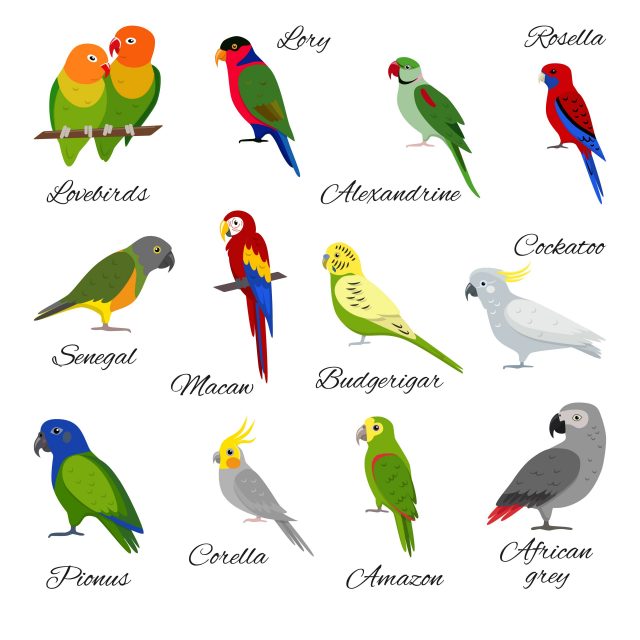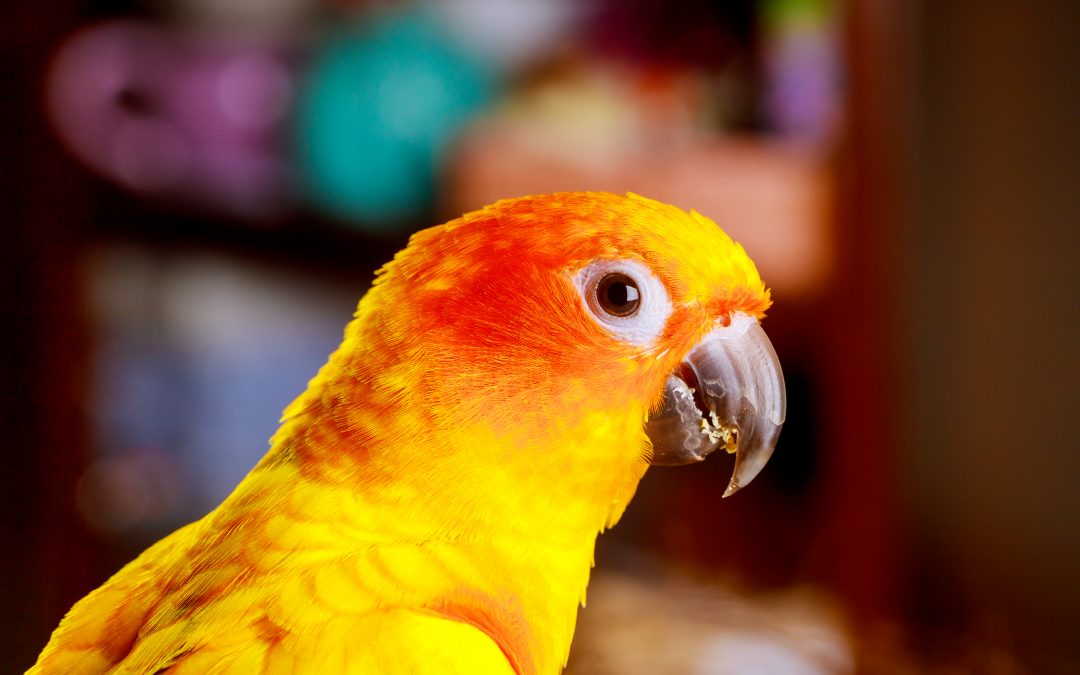Birds aren’t meant to live confined in a cage 24 hours a day for the rest of their lives. Seasoned bird owners know the importance of allowing pet birds to have free fly time – not only does free fly time allow the birds to get their needed exercise, but it is also essential for their mental health.
Birds – from parakeets to parrots – are extremely intelligent and can learn to master commands, such as “go into your cage,” and some birds will instinctively go into their cages when it begins to get dark.
Whether you have a parakeet (or two or three) or a parrot, bird proofing your home is the first step to allowing your bird free fly time. There are plenty of household hazards in every home that must be considered when your bird is out flying. Following are some tips for keeping your bird safe while she’s enjoying her free time:
1. If you don’t have window treatments or blinds on your windows, consider putting a decal or something that will stop your bird from flying into the window. If you do have window treatments, keep them closed when your bird is out.
2. Always ensure your bird’s toenails are clipped and short. Long toenails can be a hazard, as your bird may become stuck on the curtains, the couch, or any other material.
3. Keep all ceiling fans and regular fans turned off when your bird is flying – if your bird flies into a turning fan, she can be seriously injured or killed.
4. Always check the tops of doors before you shut them to make sure your bird isn’t sitting on top.
5. Watch where you walk. Some birds like to scurry across the floor, and you don’t want to accidentally step on your bird.
6. Always take care when opening the door to go outside, so your bird doesn’t fly away.
7. Do not keep your kitchen sink – or the cups, bowls, and pots inside of it – filled with water. Your bird may inadvertently fall in and drown.
8. Keep the toilet seat down, or always make sure you keep your bathroom door shut.
9. Never place your bird’s cage or let your bird in the kitchen for any amount of time when you’re cooking. In addition to the danger of your free-flying bird burning herself on a hot stove, she’ll be exposed to toxic fumes from Teflon and other such cooking materials.

A variety of popular pet birds
10. Supervise your bird if she is going to be around children. If you have children in your family, show them how to properly handle your bird, and make sure your bird has a safe place to fly if she doesn’t want to be around a child.
11. Always make sure your washer and dryer doors are shut. Before and after you use both the washer and the dryer, check to make sure your bird isn’t trapped inside.
12. If you use a laundry basket when folding your clothes, check for your bird. Some birds find a laundry basket, especially with warm contents, the ideal napping spot.
13. Do not use candles, or keep your bird out of any rooms where candles are burning.
14. Keep your bird away from any light bulbs that are turned on (as they become very hot) and do not allow your bird near a light bulb unless it is cool.
15. Do not smoke around your bird – smoke is toxic to birds.
16. Know what plants are dangerous to animals, and either do not have them in your home or keep them in an area to which your bird has no access.
17. If you also have an aquarium, cover it when your bird is out, or else there’s the risk of drowning. Because birds can drown in even the slightest bit of water, always be on guard.
18. Cover your cords and wires (i.e. telephone, television, computer, stereo) with tubing or cord concealing to deter your bird from munching on them.
19. Ensure all of the air ducts in your home are properly covered. Unfortunately, an uncovered air duct can be extremely hazardous for an adventurous bird who wants to explore. Your bird may well become lost, making rescue difficult.
20. If you have a cat, keep your bird away for the cat’s litter box. Should your bird eat the litter, she may experience a blockage. Additionally, the fumes from litter can cause breathing problems in birds.
Please note that this is in no way meant to be an exhaustive list of ways to bird proof your home, and you may want to consult with your veterinarian or talk with other bird owners for more suggestions on how to provide your bird with the safest home possible. By taking the time to thoroughly bird proof your home, you’ll provide your bird with plenty of exercise and a happier life.

